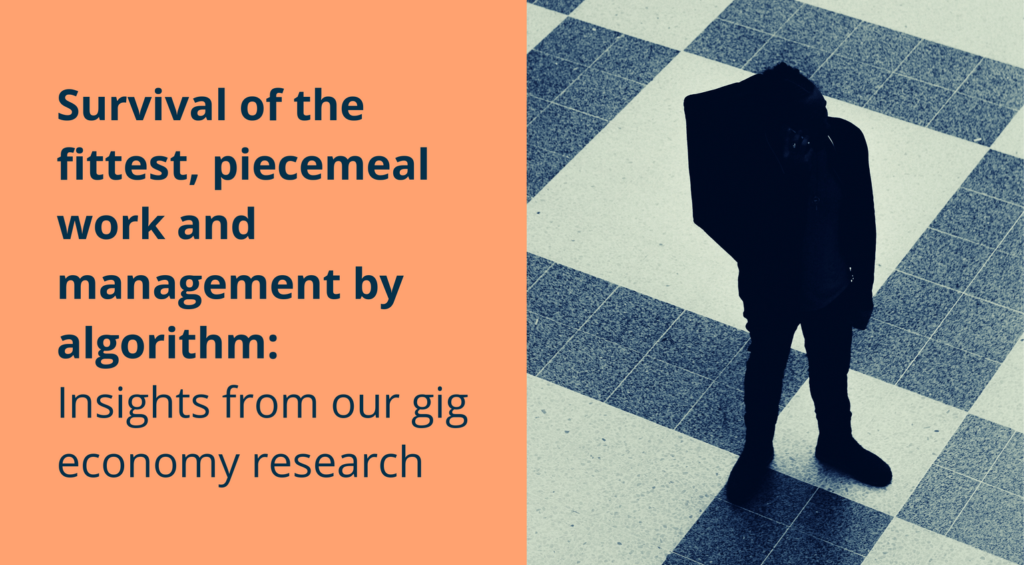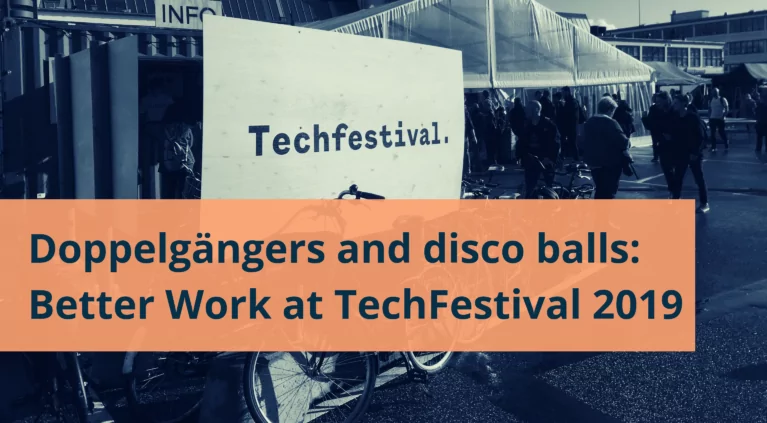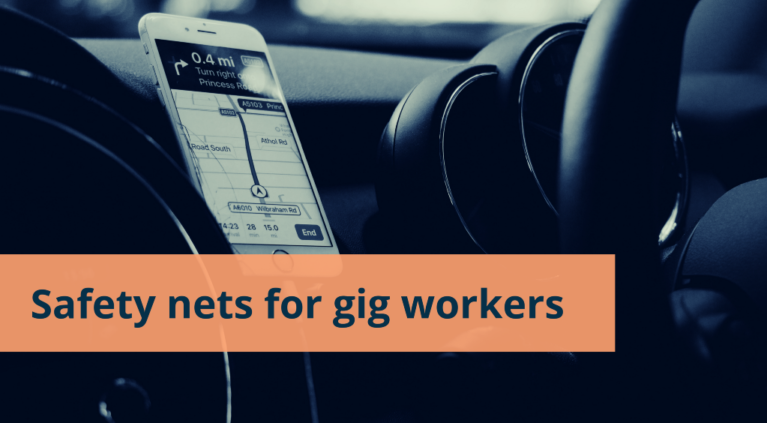Survival of the fittest, piecemeal work and management by algorithm

Since June 2019, we’ve been exploring new social safety nets for gig workers through our Better Work programme. It’s been an interesting ride, taking in Gladstone pottery in Stoke-on-Trent, doppelgangers and disco-balls in Copenhagen and all corners of the gig economy.
And the research journey has featured similarly curious twists and turns. We started broad; giving cleaners, cycle couriers, micro-taskers, taxi drivers and other workers a platform to share their lived experiences at the heart of the gig economy. Then, with the design agency Comuzi, and a selection of the gig workers we’d being speaking to, we took the 20+ hours of interview recordings to pull out observable themes around the good and bad sides of gig work.
In August we took a pause to reflect and connect the dots between our findings and our wider mission to champion responsible technology.
After much whittling and polishing, we have arrived at three central insights on the gig economy relating to what we see as three fundamental pillars of good work: financial health and security, career progression and satisfaction, and identity and respect.
“Right now it’s survival of the fittest” – unfair competition results in a race-to-the-bottom for worker’s wages
Market competition is not a new phenomenenon.
But in the gig economy, perspectives are often framed by the person’s involvement in it. For customers, competition typically means low prices and seamless services. But the workers we spoke to were bearing the brunt of competition, leading to an increasingly unfair situation.
Many feel pressured to be always on, devote unpaid hours to PR-ing profiles and offer freebies in an attempt to secure repeat custom.
“Right now its survival of the fittest… If someone asks for the house to be clean but not the fridge, that cleaner’s going to clean the fridge for free” – Helpling cleaner, London
The securities traditionally offered by employers such as insurance, sick-pay, equipment costs, are unbundled from the platforms and pushed onto workers. These costs mean take-home wages never match the potential maximum advertised by gig companies.
And fierce competition between platforms – racing to reach a critical mass of customers past which networks effects lead them to market domination – encourages them to offer prospective workers enticing sign-on bonuses and favourable pay. Once enough workers are on-board however payment terms shift, predictably benefitting the platform at the expense of the workforce.
“In the beginning they paid £10… Then when they’ve got you hooked on they dropped it right down to £3/delivery” – Cycle courier, London
Then there is the vast troves of data held by platforms – invisible to customers, workers and regulators – giving them freedom to create artificial markets and forming arbitrary boundaries that disadvantage some workers. An Uber driver in Stoke, for example, who is forbidden from entering Manchester drivers’ turf due to agreements between the platform and local councils, bemoaned the fact his pay was so much lower than theirs.
“You’re only as good as your last month” – piecemeal and opaque digital gigs forces workers to focus on the short term
The asymmetry of access to data between platforms and users also affects workers’ ability to plan for the future. It could, in theory, be possible to open up the data and provide workers with a better understanding of seasonal and daily variation in pay, make personalised predictions of future work hours and give insight into wider pay trends.
But for many forms of gig work people are left in the dark and guessing as to how much to save. This complicates any attempts to predict what their future earnings will be. The power imbalance extends into other areas of their work too. The pressure to be “always-on” to ensure they can piece together enough hours to make endsmeet by the end of the week eats up the time, energy and headspace to make future finance and career plans.
Ratings systems typically focus on short-term metrics such as delivery speed, waiting times or efficiency of completing micro-tasks. These decay quickly if workers don’t maintain them or take a month off.
“Going on holiday could affect your statistics, you’re only as good as your last month. If you took more than a few weeks off you’d find it hard to then book on good shifts” – Cycle courier, Milton Keynes
Some interviewees described an alternative future where they could define feedback most helpful to them, focusing on transferable skills that they could use to take the next step up their career ladder. If a recent immigrant to the UK wants to meet the language requirements to get onto a teaching degree, why shouldn’t they be able to ask for feedback on their conversational English?
“They should treat us like people not robots” – management by algorithm disrespects workers
Anyone who interacts with the digital gig economy, whether as customers or workers, has little contact with the platform that serves as intermediary.
For workers, the impact of this is two-fold: they “become the face of the platform” (for good and bad), receiving tips but also bearing the brunt of customer’s rage for unsatisfactory products.
And many also struggle to build a dialogue with platforms which means their concerns are left unheard and questions around how to navigate platforms or improve their earning prospects unanswered. Management by algorithm creates black-and-white situations where workers’ actions lead to reward or punishment, with little opportunity for workers to contextualise their decisions.
“They should treat us like people not robots. I don’t really feel it’s personal” – TaskRabbit worker, Bristol
One cycle courier described the tension of picking up food from a restaurant owner that had previously verbally abused him, weighing up safety concerns against the ratings backlash that comes with turning down a job. With hours and earnings at a premium, he reluctantly accepted the gig.
These insights show the urgent need to develop new safety nets for those that rely on the gig economy to work and live. Over the next month, we’ll be looking at this challenge from two angles; developing prototype solutions for tackling these issues alongside forming policy solutions that address the root structural causes of precarious and insecure gig work. If you’d like to work with us to make these changes, get in touch at [email protected]


